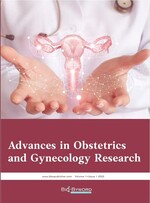Abstract
Objective: To investigate the clinical effect of low molecular weight heparin sodium injection combined with magnesium sulfate injection and labetalol in the treatment of severe pregnancy-induced hypertension. Methods: A total of 48 patients with severe pregnancy-induced hypertension admitted from February 2021 to February 2023 were selected, and the patients were divided into two groups by simple sampling, with 24 cases in each group. Patients in the control group received labetalol orally and intravenous infusion of magnesium sulfate, whereas those in the observation group received subcutaneous injection of low molecular weight heparin sodium on the basis of the control group. The two groups of patients underwent 5 days of treatment, and the blood pressure control, vascular endothelial function, renal function, and blood coagulation were compared between the two groups. Results: Before treatment, there were no significant differences in blood pressure readings, endothelin-1 (ET-1) and nitric oxide (NO) levels, serum creatinine (SCr) and blood urea nitrogen (BUN) levels, and the four coagulation indices between the two groups (all P > 0.05). After treatment, the blood pressure readings in the observation group were lower than those in the control group (P < 0.05); ET-1 in the observation group was lower than that in the control group, and the NO level in the observation group was higher than that in the control group (P < 0.05); compared with the control group, the observation group had lower SCr and BUN (P < 0.05), longer prothrombin time (PT), activated partial thromboplastin time (APTT), and thrombin time (TT), and lower fibrinogen (Fib) level (P < 0.05). Conclusion: Low molecular weight heparin sodium injection combined with magnesium sulfate injection and labetalol in the treatment of severe pregnancy-induced hypertension can help control blood pressure levels, promote the recovery of vascular endothelial function and renal function, and effectively correct coagulation function.
References
Zhang X, Li Q, 2021, Application Effect of Preventive Nursing Intervention Based on Quantitative Evaluation Strategy in Severe Pregnancy-Induced Hypertension. Thrombosis and Hemostasis, 27(6): 1044–1046.
Chen G, Xu C, Yang J, 2021, Changes and Clinical Significance of Urinary Microalbumin and Hemorheological Indicators in Patients with Pregnancy-Induced Hypertension. Hainan Medicine, 32(5): 586–589.
Collaborative Group for Prognostic Evaluation of Very Low Birthweight Infants in Shandong Province, 2021, Effect of Hypertensive Disorders in Pregnancy on Adverse Outcomes of Very Preterm Infants During Hospitalization: A Prospective Multicenter Cohort Study. Chinese Journal of Perinatology, 24(4): 288–296.
Li Y, 2021, Efficacy of Labetalol Hydrochloride Tablets Combined with Magnesium Sulfate in the Treatment of Severe Pregnancy-induced Hypertensive Syndrome—Comment on “Practical Handbook of Diagnosis and Treatment of Hypertensive Disorders During Pregnancy”. Chinese Journal of Experimental Formulas, 27(24): 117.
Wang C, Chen J, Ge J, et al., 2022, Risk Factors and Short-Term Prognosis of Early Pulmonary Hypertension in Preterm Infants. Chinese Journal of Pediatrics, 60(7): 682–687.
Sun Y, Zhang Y, Li C, et al., 2022, Discussion on the Timing and Methods of Pregnancy Termination in Non-Severe Gestational Hypertension and Preeclampsia. Journal of Practical Obstetrics and Gynecology, 38(8): 601–605.
Zhang X, Zhang S, Hu Y, 2022, Changes and Clinical Significance of Blood Coagulation Function Indicators in Pregnant Women with Gestational Hypertension Syndrome. Chinese Journal of Family Planning, 30(9): 2116–2119 + 2123.
Wei L, Yu L, Lin Y, et al., 2022, The Clinical Significance of the Expression Levels of HOXB3 and HIF-1? in the Placenta of Women with Pregnancy-Induced Hypertension Syndrome. Chinese Journal of Clinical Pharmacology, 38(16): 1859–1862 + 1867.
Wang K, Li H, 2022, Analysis of Changes in Immune Inflammatory Factors and Platelet Parameters in Patients with Pregnancy-Induced Hypertension. Thrombosis and Hemostasis, 28(3): 844–845.
Dong G, Wang X, Qi H, 2021, The Effect of Magnesium Sulfate Combined with Labetalol on Inflammatory Stress Response and Vascular Endothelial Function in Patients with Pregnancy-Induced Hypertension. Practical Hospital Clinical Journal, 18(3): 100–103.
He L, Li H, Zhong W, et al., 2021, Study on the Correlation Between MTHFR Gene C677T Polymorphism and Hcy and Renal Function Indicators in Patients with Pregnancy-Induced Hypertension. International Journal of Laboratory Medicine, 42(2): 181–184 + 188.
Kang X, Lin J, Cao J, 2021, Effect of Blood Pressure Intensive Care on Patients with Pregnancy-Induced Hypertension Syndrome. Qilu Journal of Nursing, 27(13): 58–61.
Yang F, Gao P, 2021, Expression and Clinical Significance of Platelet Parameters and D-Dimer in Patients with Early Kidney Injury in Pregnancy-Induced Hypertension. Shaanxi Medical Journal, 50(4): 413–416.
Ding F, Zhao A, 2021, Predictive Value of Combined Detection of Serum Cys-C, RBP and CRP in Pregnancy-Induced Hypertension Complicated with Acute Kidney Injury. Laboratory Medicine and Clinic, 18(15): 2265–2268.
Lin N, Cai J, Liang Q, et al., 2022, The Diagnostic Value of Vascular Endothelial Function Indicators for Acute Kidney Injury in Pregnant Women with Pregnancy-Induced Hypertension. Chinese Medicine, 17(9): 1385–1389.
